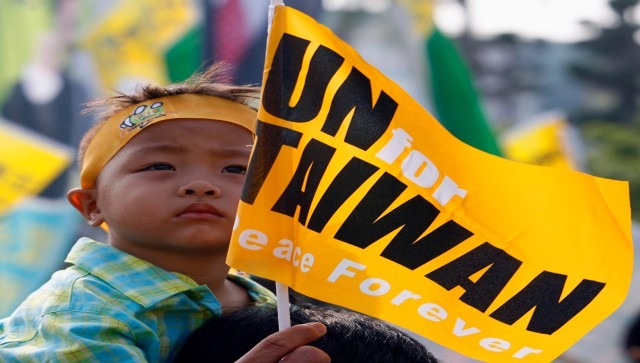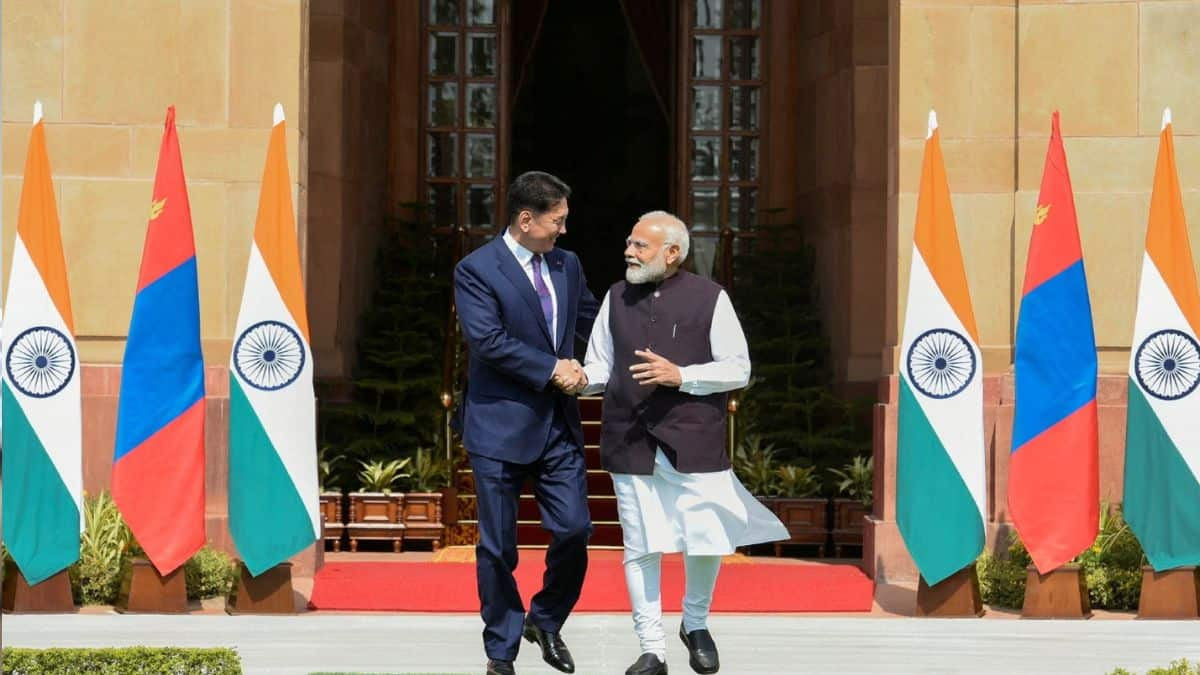People’s Republic of China (PRC), i.e. Communist China, manipulated the world community to replace Republic of China, i.e. Taiwan, in the United Nations Security Council in 1971. Taiwan has made several attempts to enter the UN since then, but it has been rebuffed by the UN.
Life has been tough for Taiwan, a nation of around 25 million people. Ever since 1971, they have been denied entry to the World Bank, International Monetary Fund and even the World Health Organisation. And it is China that has been using strong arm tactics to isolate Taiwan as it wants to gobble it up as one of its provinces.
In the 1960s, both Taiwan and the Communist China had diplomatic relations with an equal number of countries. Today, Taiwan has diplomatic relations with only 13 countries which primarily consist of very small countries. China has been using strong-arm tactics and especially its economic heft to wean away any support in the international community for Taiwan.
Chinese coercion: Case Study of Lithuania
In November 2021, Lithuania allowed Taiwan to open a new representative office in Vilnius. The office was officially called the “Taiwanese Representative Office in Vilnius”. It was a significant move as it marked the first opening of a new Taiwan representative office in Europe in 18 years. Prior to this Taiwan had opened a representative office in Slovakia in 2003. It was also the second such office to exist under the name “Taiwanese” in the world, after Somaliland. China was outraged and it decided to coerce Lithuania for having bilateral ties with Taiwan.
Global Taiwan Institute (GTI) assessed this situation and came out with a brief titled “Lithuania’s Confrontation with China Over Taiwan: Lessons from a Small Country.” Exposing the Chinese modus operandi, it said, “Opening of a Taiwanese Representative Office in Vilnius unleashed the full wrath of China. As a result, Beijing downgraded the status of its diplomatic representation in Lithuania to the level of the chargé d’affaires, renamed its embassy in Lithuania as the Office of the Chargé d’Affaires, and began urging the Lithuanian side to do the same.
Impact Shorts
More ShortsShortly thereafter, Lithuanian diplomats in China were forced to leave Beijing urgently because their diplomatic status was simply revoked. Then, in December 2021, Lithuanian exports to China were almost completely blocked, with more than 90 percent of the usual flow of goods prevented from entering the Chinese market. These unofficial trade sanctions (China never issued a formal decision to sanction Lithuanian goods) had little impact on Lithuania’s economy, as exports to China accounted for less than one percent of Lithuania’s total exports. However, concern rose significantly following unofficial reports that China had blocked exports from other EU companies when they contained components of Lithuanian origin.”
Lithuania, however, has stood its ground and refused to budge to Chinese coercion. Fortunately, it didn’t have very strong economic links with China, so its economy wasn’t impacted much. But for all those who have strong economic links with China there is a lesson in this stand-off.
“Practically speaking, it would be better to cut off the most sensitive links with China now, so as not to suffer painful consequences later. And most importantly, the potential fight against China will require concentrated efforts by the entire EU, as well as the support of all democratic partners. China is a large country, but it is mostly alone. The consolidation and unity of many countries, even small ones, is the most effective way to withstand bullying by authoritarian regimes like the PRC,” says the GIT report.
How China has blocked the UN access to Taiwan
Since 1971, China has kept not only Taiwan’s government representatives out of the United Nations, even the civil society and private citizens face the Chinese wrath through severe restrictions imposed on them in the UN. According to a General Marshall Fund report, “ROC passport holders continue to face restrictions accessing UN buildings and offices… In the past few years, there have been numerous instances of the PRC preventing NGOs, civil society representatives, and even high schools, from accessing UN resources or attending UN-organised forums and events if Taiwan features on their websites or organization materials as ‘Taiwan’, as opposed to ‘Taiwan, Province of China’.”
“Affected organisations that often do not want to become involved in geopolitical issues, are unaware of the nuances, or seek to avoid negative repercussions generally acquiesce to enable entry and access to UN-related organisations.”
Nomenclature War
China is very particular that in all the UN documents ‘Taiwan’ should be mentioned as a province of China to enforce its ‘One China Policy.’ Communist China applies the same criteria to all multilateral organisations. An interesting case study in this regard is the manipulation of the standards set forth by the International Organisation for Standardisation (ISO). The latter is an independent, non-governmental international organisation with a membership of more than 165 national standards bodies. ISO helps in developing international standards and it uses the United Nations data base to give specific numeric codes for different countries. It hasn’t been designated as a separate country, instead it has been designated as ISO 366, “Taiwan (Province of China)” since 1974. Taiwan has made several unsuccessful efforts to get this tag removed
Analysts Jessica Drun and Bonnie S Glaser aptly explain this in the George Marshall Fund report (The Distortion of UN Resolution 2758 and Limits on Taiwan’s Access to the United Nations), “The PRC’s objective appears to be to implant the “One China” Principle across all levels of the UN and its related organisations, and to establish an equivalency between it and UN Resolution 2758 so that this position becomes customary international law, or “international obligations arising from established international practices.”
Highlighting this issue, US Secretary of State Antony Blinken released a press statement in October 2021 saying: “Members of civil society from around the world engage every day in activities at the UN, but Taiwan’s scientists, technical experts, business persons, artists, educators, students, human rights advocates, and others are blocked from entry and participating in these activities simply because of the passports they hold.”
Why Taiwan should be granted UN membership
There are ample reasons for granting UN membership to China. Many of these reasons were put forward by a letter dated July 7, 1998 that was addressed to the Secretary-General of the United Nations by representatives of Burkina Faso, El Salvador, the Gambia, Grenada, Liberia, Nicaragua, Sao Tome and Principe, Saint Vincent and the Grenadines, Senegal, Swaziland and Solomon Islands. Urging the United Nations to immediately review resolution 2758, and grant membership to Taiwan, the letter argued: ‘As a global organization, the United Nations should not ostracize any member of the global village. The cases of the now unified East Germany and West Germany and the still divided South Korea and North Korea serve as precedents for parallel representation of divided nations in the United Nations. The exchanges between the two parts of Germany via the United Nations and other international organisations undoubtedly contributed to their peaceful unification in 1990.
Since their separation half a century ago, the Republic of China and the People’s Republic of China have developed under two different systems of political and social values. Until unification is achieved, the Republic of China is entitled to have its own representation in the United Nations. In the meantime, however, the People’s Republic of China does not in any way represent the 21.8 million people of the Republic of China.”
The representatives further said, “The geographic location of the Republic of China makes it a focal point of the Asia-Pacific region, so its sense of security and its commitment to cooperation and peace are critical to the stability of the region as a whole.”
The letter added, “The General Assembly should address the unjust situation created by the adoption of resolution 2758 (XXVI) and restore to the people of the Republic of China their lawful right to participate in the United Nations and all of its activities. The perpetuation of resolution 2758 (XXVI) is the main obstacle barring the Republic of China from the United Nations. It totally ignores the fact that China has been divided into two separate political entities and that each of them exercises jurisdiction over a portion of Chinese territory.”
“These representatives also reminded the UN that a review by the General Assembly of its resolutions is not without precedent. In 1950, the General Assembly adopted resolution 386 (V) to overturn resolution 39 (I), which had barred Spain’s participation in the activities of the United Nations. The revocation of resolution 3379 (XXX) in 1991 is another example.”
The letter summed it up well, “In the current international situation, the continued exclusion of the Republic of China from the United Nations is archaic, unjust and unwarranted. The resolution that perpetuates this exclusion must be reviewed, with a view to restoring to the 21.8 million people of the Republic of China their right to participate in all the activities of the United Nations.”
The strange and interesting aspect of these developments where China has been acting as a bully within and outside the United Nations is the fact that these developments, despite being in plain sight, could never make it to the headlines building a global narrative that could put China in a tight spot. This is yet another indication of how China dominates and controls the global narrative. The time has come for the world community to collectively challenge the Chinese narrative. The first step in this direction could be to support Taiwan’s re-entry into the UN.
(continues)
The writer, an author and columnist, has written several books. He tweets @ArunAnandLive. Views expressed are personal.
Read all the Latest News, Trending News, Cricket News, Bollywood News, India News and Entertainment News here. Follow us on Facebook, Twitter and Instagram.


)




